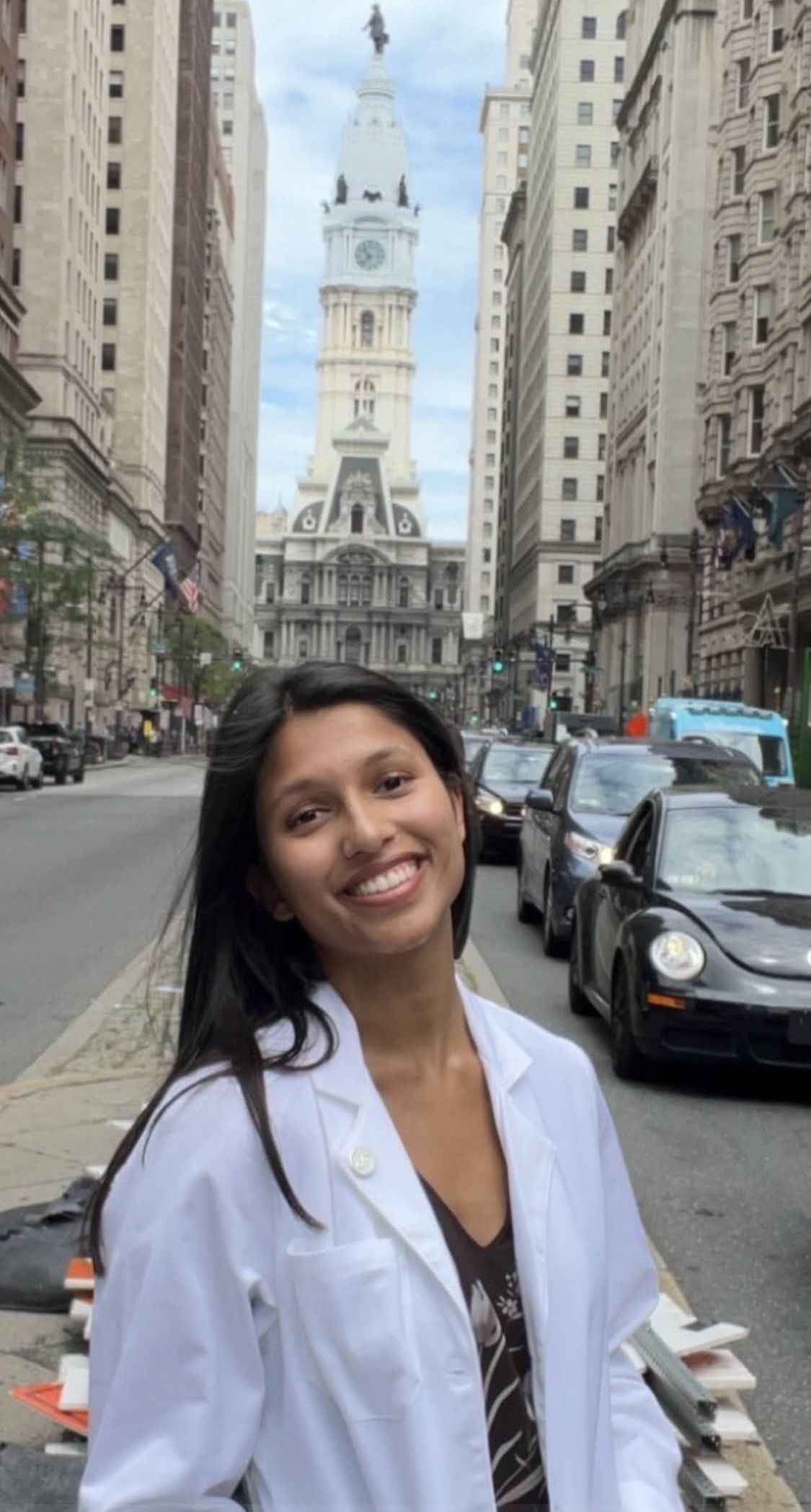
Hometown: Lafayette Hill, Pa.
Undergraduate: Bachelor of Arts, International Relations, University of Pennsylvania
Can you share a bit about your background and what led you to choose Drexel for your medical education?
I was born in Atlanta, Georgia, and grew up in the suburbs of Philadelphia. Education has always been a core value of my family and growing up I was exposed to medicine and research as careers through different family members.
My favorite subjects early on were world history and the sciences, and I continued to study these subjects through my pre-medical and international relations coursework as an undergraduate. My journey to medicine was non-linear as I weaved in and out of pursuing a medical degree. Through my research experiences in global health and clinical volunteering in Philadelphia I realized the value of the medical knowledge base and the unique patient-physician connection. I ended up choosing Drexel to pursue medicine due to its commitment to community-centered work and location close to my home.
What experiences have most influenced your career goals and aspirations?
What really drew me to medicine was my experience working in limited-resource settings through global health research. During my freshman year of college at the University of Pennsylvania, I worked on a maternal/child nutrition project in a rural village in Gambia in Western Africa. It was an incredible opportunity, learning to design and implement a health survey questionnaire for over 700 study participants alongside national and local community stakeholders. This experience was my introduction to global public health and solidified my interest in pursuing a clinical background to support these communities.
Later, my experience working with members of the Global Health Center at the Children's Hospital of Philadelphia in a pediatric clinic in rural Dominican Republic furthered my research experience and clinical knowledge. Now looking back as a fourth-year medical student, I am so grateful for the incredible mentors who supported me in developing my interests as a student researcher and aspiring physician. Without them I may not have ended up in medical school!
Congratulations on being selected as a finalist for the Fulbright-Fogarty Fellowship in Public Health! Tell us more about your project and what you hope to achieve.
As a Fulbright-Fogarty Research Fellow, my grant integrates the cross-cultural mission of the U.S. Fulbright Program with the global health research priorities of the NIH Fogarty International Center. My project focuses on assessing chronic health risks associated with polycyclic aromatic hydrocarbon (PAH) exposure from brick kiln emissions in Bhaktapur, Nepal. This work builds on the larger Brick Kiln Project — a collaboration between Johns Hopkins University and Tribhuvan University — which investigates the health impacts of brick kiln pollution on workers. In Nepal, over 200,000 brick kiln workers are routinely exposed to harmful pollutants such as silica dust, PM2.5 and PAHs. My study aims to better understand the specific role of PAHs in contributing to these health risks.
Outside of research, I look forward to immersing myself in the local community — learning to cook regional dishes, picking up the local language, trekking, and exploring Nepal’s music and arts culture.
Which Drexel support services or student groups have had the greatest impact on your medical school journey?
While at Drexel, support came largely from my peers. As president of the Global Health Interest Group, I found a community of passionate medical students. Last year, as I completed my clinical year as a rotating third-year medical student, I also found clinical and research mentors at multiple institutions who guided me as I completed my Fulbright-Fogarty application and considered my future career path.
What advice do you have for those applying to medical school?
Build and maintain your team of mentors. Medical school — and the path to it — can be overwhelming and having people who genuinely support and guide you makes a tremendous difference. Seek mentors from both your personal and professional life; they don’t all have to be physicians. Medicine is not a journey you take alone — having the right people in your corner will help you stay focused, resilient and aligned with your goals.
The Fulbright U.S. Student Program awards funding for one academic year of self-designed study, research, creative projects or teaching English in over 140 countries around the world. For more information please visit the Fulbright U.S. Student Program website or email fellowships@drexel.edu for more on the resources available to Drexel students and alumni applying for Fulbright.